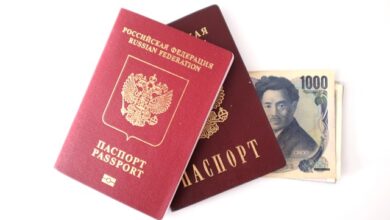Language and Integration Requirements for French Citizenship

Obtaining French citizenship is a significant milestone for many expatriates, offering not only the right to vote and hold a French passport but also full integration into one of Europe’s most culturally rich nations. However, becoming a French citizen involves meeting specific language proficiency and integration requirements designed to ensure that new citizens can actively participate in French society. This guide outlines the key criteria and steps involved in fulfilling these obligations.
1. Overview of French Citizenship
French citizenship can be acquired through several pathways:
- By Birth (Jus Soli or Jus Sanguinis): Automatically granted if born in France or to at least one French parent.
- By Marriage: Available after four years of marriage to a French citizen.
- By Naturalization: Open to legal residents who meet eligibility criteria, including language and integration requirements.
- By Declaration: For individuals with special ties to France, such as long-term residency or military service.
For most applicants, naturalization is the primary route to citizenship. Language and integration are central components of this process.
2. Language Proficiency Requirement
Demonstrating adequate knowledge of the French language is mandatory for all citizenship applicants aged 18 or older. The level required is B1 on the Common European Framework of Reference for Languages (CEFR). At this level, candidates should be able to:
- Understand the main points of clear standard input on familiar matters.
- Communicate effectively in everyday situations.
- Express opinions, describe experiences, and explain plans.
a) How to Prove Language Proficiency
Applicants must provide official proof of their language skills. Acceptable evidence includes:
- A diploma or certificate from a recognized institution indicating B1-level proficiency (e.g., DELF B1).
- Successful completion of a French government-approved language test.
- Documentation showing education conducted in French.
If you do not already possess the necessary certification, enrolling in French language courses is highly recommended. Many cities offer free or subsidized classes for immigrants through organizations like Alliance Française or local community centers.
b) Exemptions
Certain groups may be exempt from the language requirement:
- Individuals with disabilities preventing them from learning French.
- Elderly applicants (typically over 60) who have resided in France for an extended period.
3. Civic Integration Requirement
Beyond language proficiency, applicants must demonstrate successful integration into French society. This involves understanding French culture, history, values, and civic responsibilities.
a) The “Contrat d’Intégration Républicaine” (CIR)
New residents in France often sign a Republican Integration Contract , which includes commitments to:
- Attend French language courses.
- Participate in civic training sessions covering topics such as:
- The principles of the French Republic (liberty, equality, fraternity).
- Rights and duties of citizens.
- Key historical events shaping modern France.
- Gender equality and secularism (laïcité ).
Completion of the CIR is not always mandatory for citizenship but serves as strong evidence of integration efforts during the application process.
b) Living in France Long-Term
To qualify for naturalization, applicants generally need to have lived legally in France for at least five continuous years (or two years for spouses of French citizens). During this time, they are expected to immerse themselves in French life by:
- Engaging with local communities.
- Respecting French laws and customs.
- Demonstrating financial independence or stable employment.
c) Interview with Prefecture Officials
As part of the naturalization process, applicants attend an interview with officials from their local prefecture. During this meeting, they may be asked questions about:
- Their knowledge of French language and culture.
- Their reasons for seeking citizenship.
- Their contributions to French society.
The interview assesses both linguistic ability and cultural understanding, making preparation essential.
4. Additional Criteria for Citizenship
While language and integration are critical, other factors also play a role in determining eligibility:
a) Good Moral Character
Applicants must prove they are of good moral character, meaning no serious criminal convictions or threats to public order.
b) Financial Stability
Candidates should demonstrate financial self-sufficiency or steady employment, ensuring they contribute positively to the economy.
c) Assimilation into French Society
Active participation in French life—such as joining clubs, volunteering, or engaging in local politics—can strengthen your case for citizenship.
5. Steps to Prepare for Language and Integration Tests
Here’s how to prepare effectively for the language and integration components of the citizenship process:
Step 1: Enroll in French Classes
- Take advantage of free or low-cost language programs offered by local governments or nonprofit organizations.
- Practice speaking regularly with native speakers or fellow learners.
Step 2: Study French History and Culture
- Read books or watch documentaries about French history, politics, and societal norms.
- Familiarize yourself with foundational texts like the Declaration of the Rights of Man and of the Citizen.
Step 3: Participate in Community Activities
- Join local associations, sports teams, or cultural groups to build connections and deepen your understanding of French life.
- Volunteer for initiatives promoting social cohesion or environmental sustainability.
Step 4: Stay Informed About Current Events
- Follow reputable news sources like Le Monde , France 24 , or BFM TV to stay updated on national and global issues affecting France.
6. Challenges Faced by Applicants
While the requirements aim to facilitate integration, some challenges may arise:
- Language Barrier: Achieving B1 proficiency can be difficult for non-native speakers, particularly those without prior exposure to French.
- Cultural Nuances: Understanding concepts like laïcité (secularism) or the importance of republican values may require additional study.
- Bureaucratic Complexity: Navigating administrative procedures can be overwhelming, especially for newcomers unfamiliar with French systems.
To overcome these hurdles, consider seeking guidance from:
- Local immigrant support organizations.
- Lawyers specializing in immigration law.
- Experienced mentors or friends who have gone through the process.
7. Benefits of Meeting Language and Integration Requirements
Successfully fulfilling these requirements offers numerous advantages:
- Enhanced Opportunities: Fluency in French opens doors to better job prospects and educational opportunities.
- Deeper Connections: Understanding French culture fosters stronger relationships with neighbors and colleagues.
- Full Participation in Society: As a citizen, you gain voting rights, access to social benefits, and the ability to fully engage in civic life.



